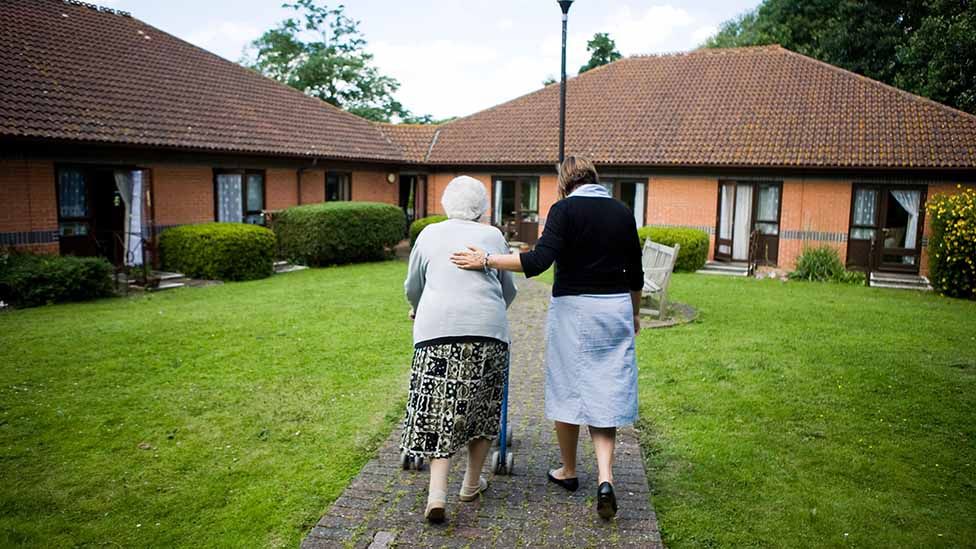It is a long time since I mentioned my profession in one of my articles. I’ve always thought it prudent to keep one’s working life and personal opinions far apart. Not least because we live in a world where those who have a grudge to bear (and they can be many) will ensure your personal views somehow find their way back to the HR department of the company that employs you. That said, after reading this scholarly article (https://www.semafor.com/article/03/12/2024/africans-fix-uk-brexit-elderly-care-crisis), I feel I can no longer keep quiet about the rapid demographic transformation that’s taking place – not only across the UK’s elderly care sector, but across its disability care sector as well.
I’ve worked with clients affected by a range of disabilities for nearly thirty years. What became a stop-gap means of subsidising the costs of a university education quickly became my career of choice after graduation. This wasn’t out of a desire to become the new Richard Branson of our times (nobody works in care for the money), but because I felt I had the ability to treat those with a disability as I would any other human being. You’d be amazed how many working in care today lack that crucial ingredient – especially those higher up the food chain, often extremely good at conjuring up rules difficult to enact for those of us at the coal face, whilst lacking the common touch themselves.
Contrary to the air of positivity engendered by the title of the linked article, Africans have NOT become the solution to our care crisis. Instead they have merely filled the massive holes left by the departure of British workers ever more discombobulated by poor wages, a lack of feeling valued and increasing workloads. In the days when small-scale nursing/residential institutions were more common, care staff could share the burden of work with a dedicated nursing team, who were on hand to administer medication and deal with health emergencies. What has happened over the past few years in many instances is the creation of ‘Supported/Assisted Living’ situations. It is a title worthy of any entry into an Arthur Daley sales pitch. Basically, Supported Living in innumerable instances means the needs and the behaviours of the client group in a given care home setting are exactly the same as they were when covered by nursing needs. However, the care organisation tendered to run a service (or services) removes the nursing input and bestows their previous workload on to care staff for the same wage as they always received. Thus, the local authority concerned pays the service provider less money out of its municipal pockets and therefore makes a substantial saving; the care provider itself can cut more corners than a kiddies’ scissor class by only providing the very basic level of support from its own pockets; with the consequence being the poor sods on the frontline effectively have their income halved by doing the work of two people. In time, what happens is care services experience the largest exodus of people since the Israelites fled to the Promised Land, and their former positions are increasingly filled by Africans who see care as a means to make an easy buck. From my experience, few have the personable skills required to make the job a success and almost none have the necessary work ethic.
I cannot even count the times over the past few years when a care agency has sent an individual to cover sickness absence, only for the team to discover they know next to nothing about the clients’ needs; and even less about team work. They sidle up to the front door, introduce themselves as ‘Salvation Ndlovu’, ‘Sambu Two-Rand’ or ‘Tsotetsi Immanuel’ before proceeding to sit down and play with their phones for the duration because they believe their presence alone makes a positive contribution to the shift. Meanwhile, us lesser native mortals still have to complete the vast bulk of the tasks, and more often than not for a smaller hourly rate than these imported indolents are rewarded with. With the above scenarios increasingly the norm over recent times, it is any wonder the quality of applicants for care jobs from the British talent pool is not what it was even a decade or so ago?
What I’ve described above is a perfect storm that has obliterated home-grown staff in many sectors of the care industry. To recap, firstly we have the introduction of Supported Living – a term corrupted to such an extent it’s lost its true meaning. Again, from my personal experience, service providers have an economic incentive to ensure that the standards for Supported Living are as low as legally allowable – making it as easy as possible to maximise funding and to reduce costs. This in turn precipitates low staff morale as more tasks are expected to be done for the same money. Once breaking point is reached and the staff member (or members) leaves, their replacements are often African. From the service provider’s point of view, the Africans still have a better job than they would in their own countries and are less likely (at least in the short term) to want better wages. That they communicate with each other and with residents in a manner whereby those with a learning difficulty must have a terrible time deciphering their vocabulary is of no consequence to the service provider whatsoever. The company has its pool of cheap labour; the costs are kept down; and the clients just have to suck it up. And all this in an industry where a plethora of do-gooders will pontificate for an eternity about the importance of client choices, rights, entitlements and dignities. With this, as with so much else, the intentions rarely make the grade of reality.
So if the author of the article thinks a steady stream of African labour is the panacea for the British care industry, I have to say he’s very wrong. No care service in the land is improved by the mass employment of those whose culture, communication methods, body language, work ethic and cliquishness are so far removed from what is ideally required, it renders the very essence of care provision worthless.




































